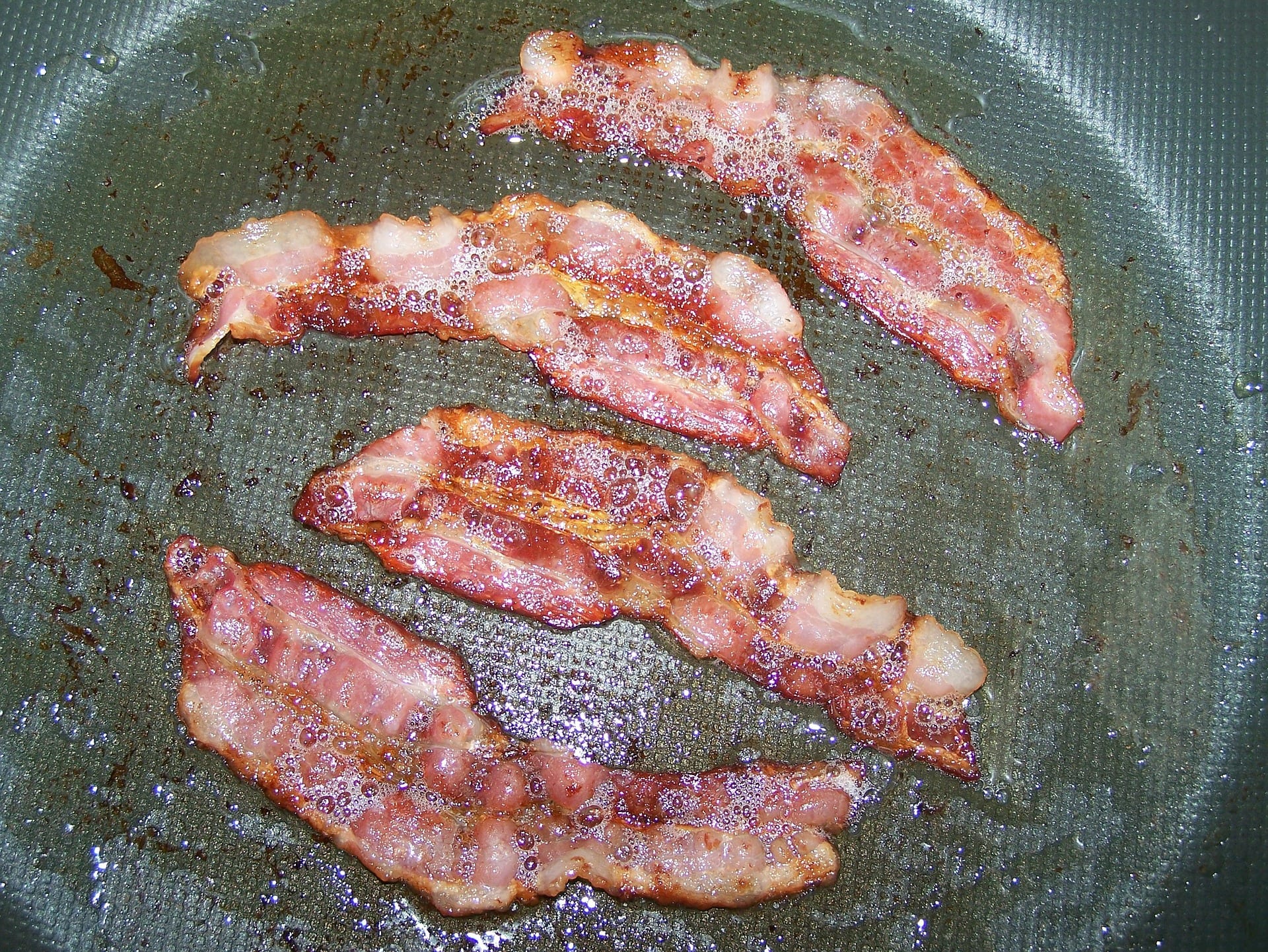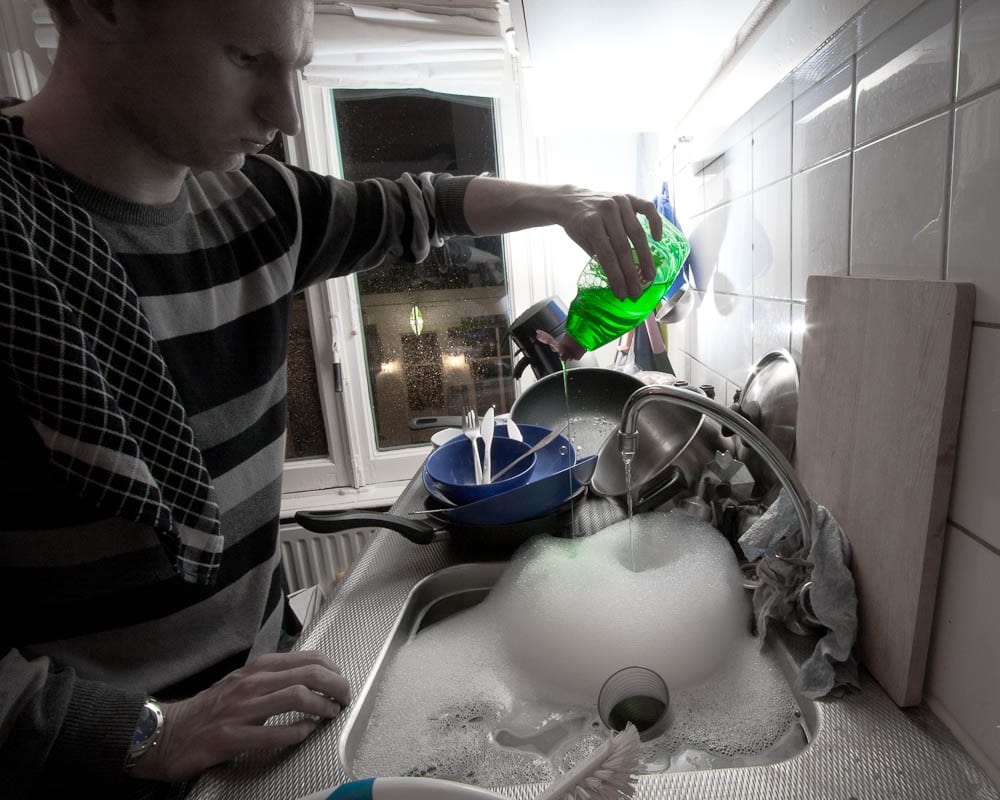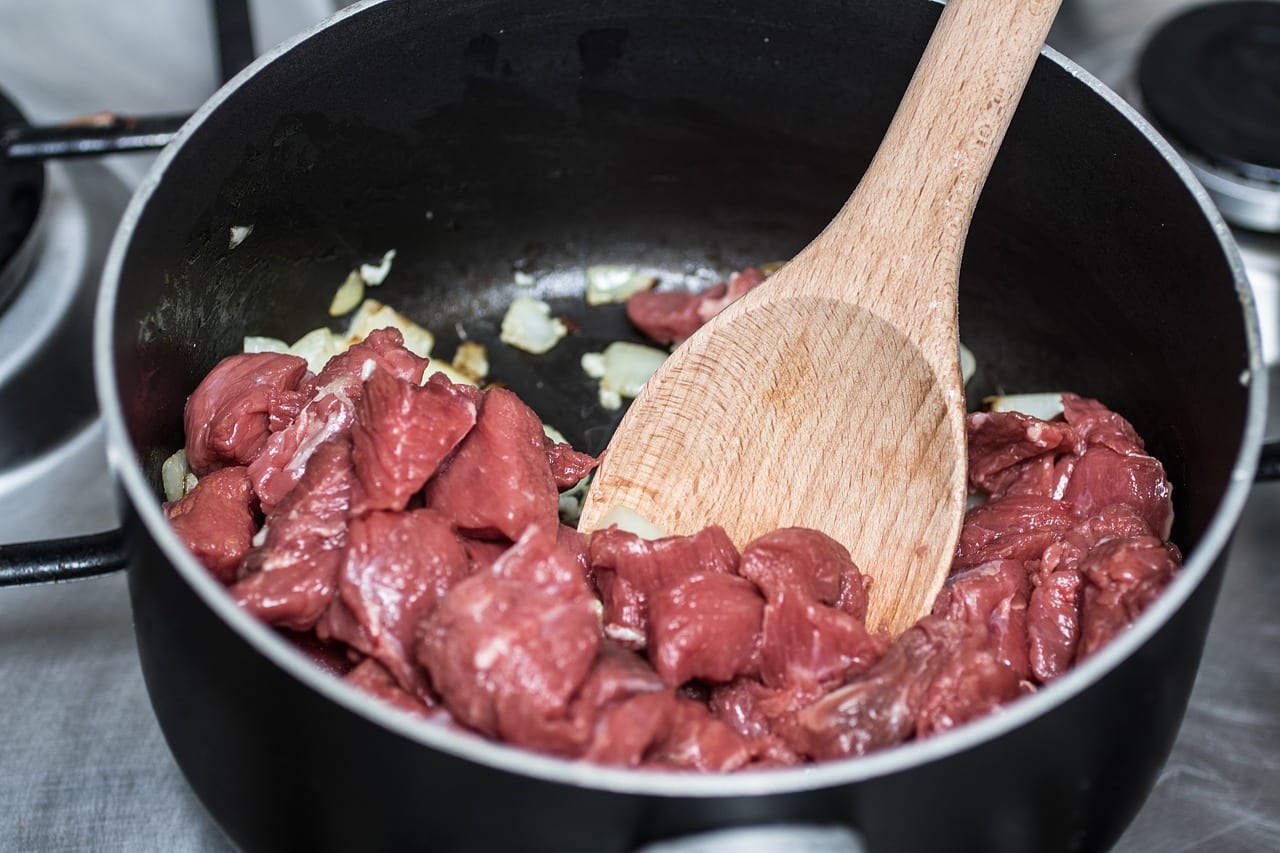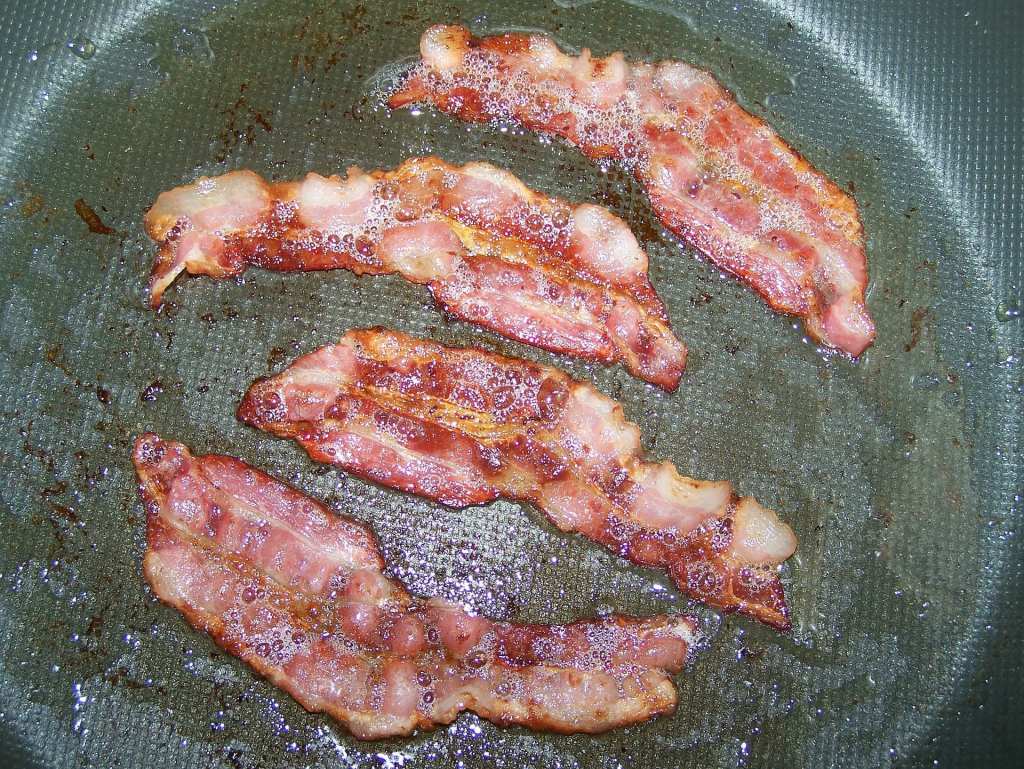It may seem like a straightforward chore, but you may actually be washing your frying pans and skillets wrong.
Completely cleaning your oily cookware in the sink, along with your other dirty dishes, is actually bad for the environment, according to the UK’s Department for Environment, Food and Rural Affairs (DEFRA).

Photo Credit: Pixabay
Here’s how to conserve water while properly cleaning pots and pans.
Stop rinsing cooking oil out of the pan with water and sending it down the drain. Instead, wait until excess grease has cooled, then scrape it into the garbage or a container for reuse. Wipe the surface with paper towel, then wash in the sink.
As oil cools, it hardens, which can cause blockages in pipes and sewers, eventually leading to damaging (and gross) fatbergs building up. So it’s best to just keep grease out of the sewers, if at all possible.

Photo Credit: Flickr
Do your non-stick pans ever get scratched as you clean? That’s not great because the stuff that makes the pans non-stick is pretty bad for your health, and scratched surfaces of non-stick pans can release toxins into your food. So when you’re cleaning non-stick cookware, remember to only use non-abrasive wash cloths and dish washing soap for cleaning.
Stacking pans can also leave scratches, which, again, can cause chemicals to leak into your food. If you have to stack your pans for storage, try putting a piece of felt between each pan – there are even felt pads made for this specific purpose.
Another no-no is putting your non-stick pans in the dishwasher, even if the manufacturer says it’s safe to do so. Extreme water temperatures and detergent can damage the non-stick coating. And, never use metal utensils in them – only wood or silicone utensils.

Photo Credit: Need Pix
If bits of food have hardened onto the pan and won’t come off with just warm, soapy water, try soaking it with a laundry softener sheet. This is one weird trick that works – your pan will sparkle again. You can also use a solution of baking soda and vinegar for a natural cleaner that give you a little scrubbing power.
If you need a little more scrubbing muscle, try sugar. It’s a little more abrasive and can loosen up stuck on food.
If you use these tips, you should be able to keep your pots and pans sparkling clean and safe to use for several years. But, if they do become damaged, scratched or the coating starts to flakes off, then throw them out and get replacements. Really – it’s not good for you to eat that stuff.
Otherwise, bon appetit!






